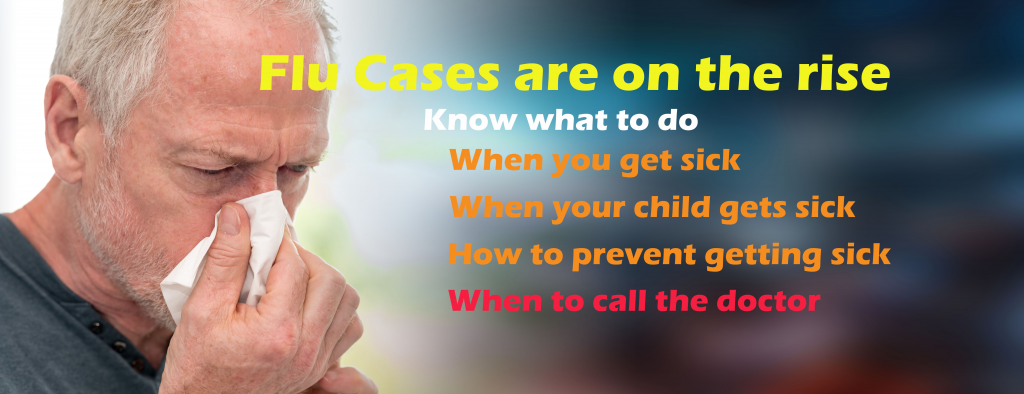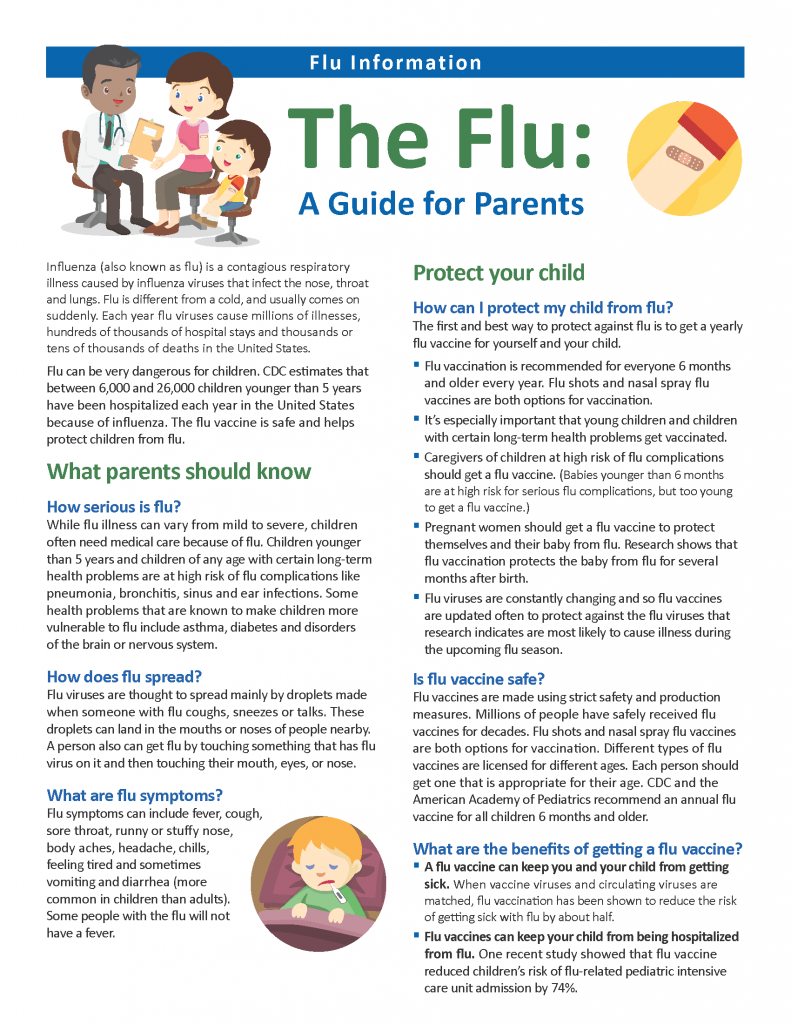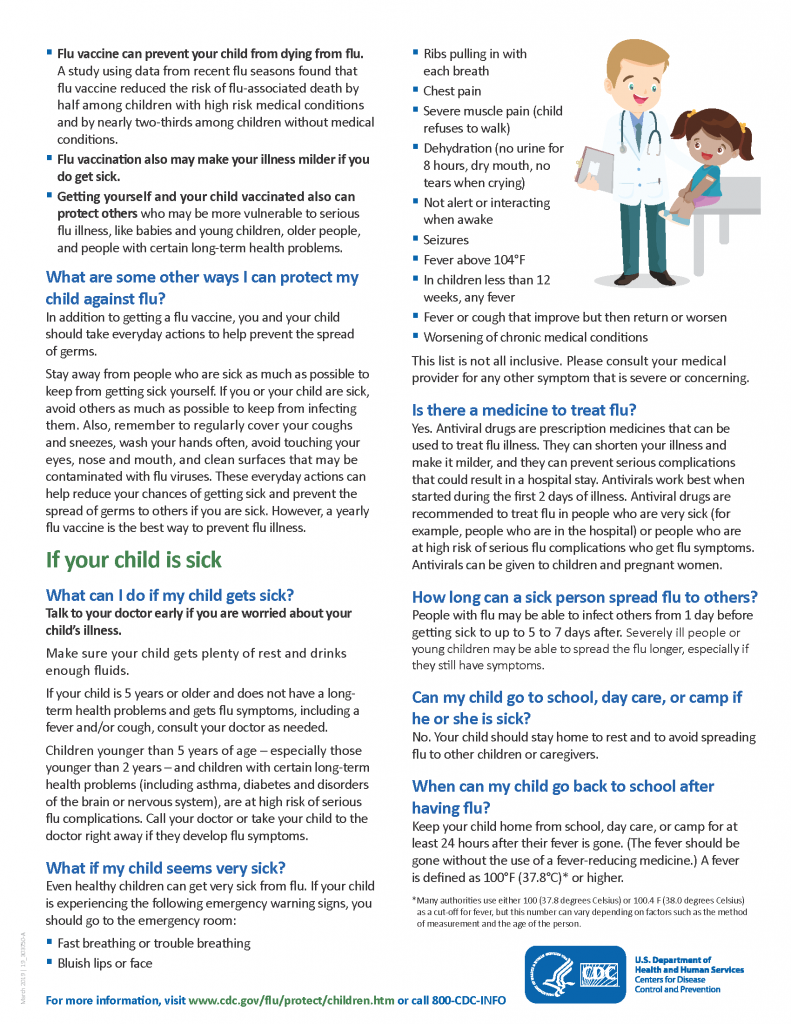
The influenza surveillance report for MMWR week #42 for Kentucky shows the current influenza activity is Widespread

73% of the total cases for the 2022/2023 year were diagnosed in MMWR week# 42.
| Number of new Confirmed Cases Reported this week | 286 |
|---|---|
| Number of Confirmed Cases for 2022-2023 Season | 392 |
| No Activity | |
| Sporadic | |
| Local | |
| Regional | |
| Widespread |
Know what to do: When you get sick

What to do when your child(ren) get sick


How to prevent getting sick
There are many steps you can take to help stop the spread of flu and to help prevent getting it. Here are some of the most beneficial tips you can take to help prevent the flu:
- Avoid close contact with people who are sick. When you are sick, keep your distance from others to protect them from getting sick too.
- Stay home when you are sick from work, school, and errands. This will hlep prevent spreading your illness to others.
- Cover your mouth and nose with a tissue when coughing or sneezing. It may prevent those around you from getting sick. Flu viruses spread mainly by droplets made when people with the flu cough, sneeze or talk.
- Clean your hands. Washing your hands often will help protect you from germs. If soap and water are not available, use an alcohol based hand rub.
- Avoid touching your eyes, nose or mouth. Germs can be spread when a person touches something that is contaminated with germs and then touches his or her eyes, nose, or mouth.
- Practice other good health habits. Clean and disinfect frequently touched surfaces at home, work, or school, especially when someone is ill. Get plenty of sleep, be physicially active, manage your stress, drink plenty of fluids and eat nutrutious foods.
- Get your annual flu vaccine. The best way to protect yourself and your loved ones against influenza (flu) is to get a flu vaccine every flu season. Everyone aged 6 months and older should get a seasonal flu vaccine.
Emergency Warning Signs of Flu Complications
In children
- Fast breathing or trouble breathing
- Bluish lips or face
- Ribs pulling in with each breath
- Chest pain
- Severe muscle pain (child refuses to walk)
- Dehydration (no urine for 8 hours, dry mouth, no tears when crying)
- Not alert when awake
- Seizures
- Fever above 104°F
- In children younger than 12 weeks, any fever
- Fever or cough that improve but then return or worsen
- Worsening of chronic medical conditions
In adults
- Difficulty breathing or shortness of breath
- Persistent pain or pressure in the chest or abdomen
- Persistent dizziness, confusion, inability to arouse
- Seizures
- Not urinating
- Severe muscle pain
- Severe weakness or unsteadiness
- Fever or cough that improve but then return or worsen
- Worsening of chronic medical conditions
These lists are not all inclusive. Consult with your medical provider for any symptom or condition that is concerning.